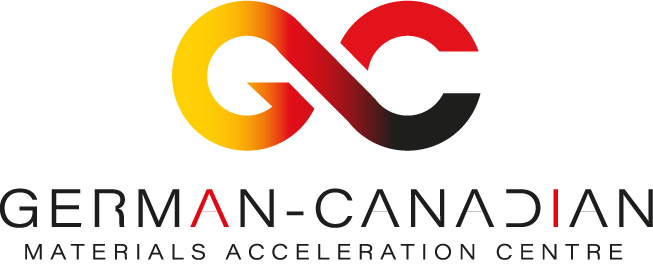Each of the associated materials science laboratories will delegate (at least) one individual (a PhD student or post-doctoral fellow) to receive thorough training on methodical concepts and practical tools developed in the GC-MAC program. This on-the-job instruction, provided by GC-MAC experts, will foster wide dissemination of the Centre’s activities. A new cohort of experts in AI-driven energy materials science will be trained to shape future research in this growing field.
GC-MAC offers education and training programs at its partnering laboratories on:
- Methods and tools in theory and computation
- Automated and autonomous synthesis
- Data science and analytics
- Workflow management.
Specific education and training modules offered by GC-MAC
Each GCMAC Work Package (WP) lead organization will develop a training module in the research field of the WP. GC-MAC offers students (MSc and PhD), PDFs, and Early Career Scientists (ECS) a rich and diverse training program on all methodical and practical aspects of the materials acceleration agenda – a globally unique opportunity.
Opportunities through GCMAC:
- On-line topical tutorial series
- Specific training modules, including a summer school, for in-person attendance (one-week duration) involving tutorial-style instruction and work on small projects
- Modules will be developed and taught by ECS or Young Investigators (YIs) in their field of specialization, to develop their instruction skills.
- Longer cross-training visits of up to several months to provide in-depth specialized hands-on training on methods and tools at GC-MAC nodes (FZJ, KIT, NRC, and NRCan labs) and associated universities
Benefits
This cross-country and cross-topic experience is an excellent way to stimulate scientific exchange and initiate new collaborations. Training will be offered not only to GC-MAC staff but also to non-GC-MAC students or PDFs from associated materials laboratories and the broader industrial research base.
These individuals will receive expert-type instruction on the use of methods and tools in data handling and analytics; AI-/ML-driven simulation, experimental design, and execution; and modeling-based diagnostics. Further, students will receive close supervision of their educational and scientific pursuits and strong mentorship for career development.



